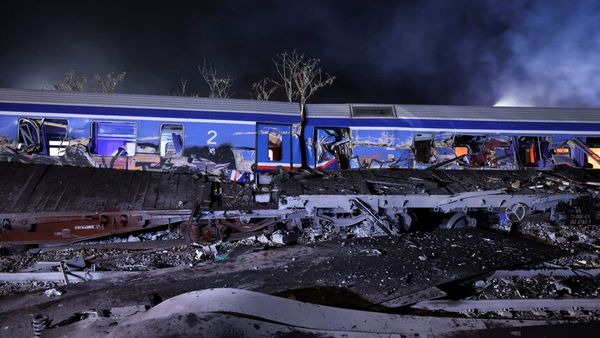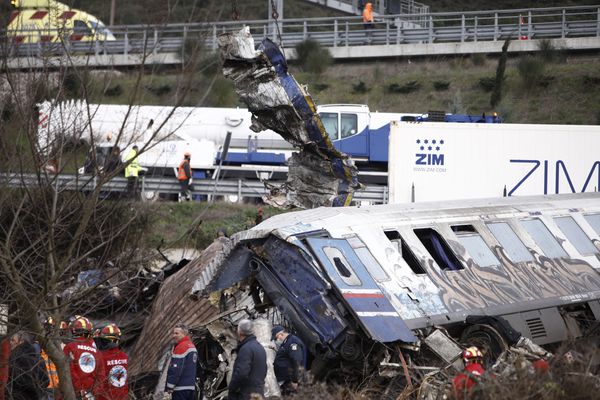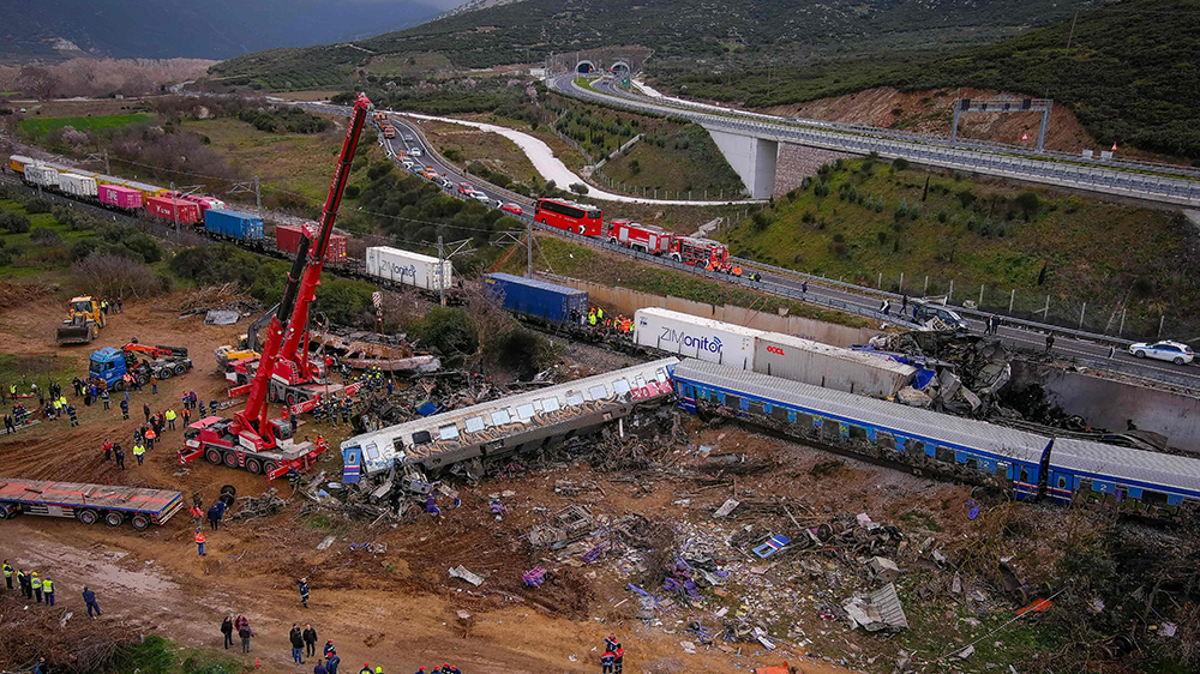
Greece was referred to the EU Court of Justice for failings in its railway infrastructure just two weeks before a fatal crash in which two trains collided.
At least 36 people have been killed and scores injured after a high-speed passenger train collided with an oncoming freight train in Greece, throwing entire carriages off the tracks.
Officials said that 66 of the injured have been hospitalised, of whom six are in intensive care. About 250 passengers were evacuated safely to Thessaloniki on buses.
Just two weeks before the devastating crash, on 15 February, the European Commission referred Greece to the EU’s top court after “failing to fulfill its obligations under the Single European Area Directive (2012/34/EU).”
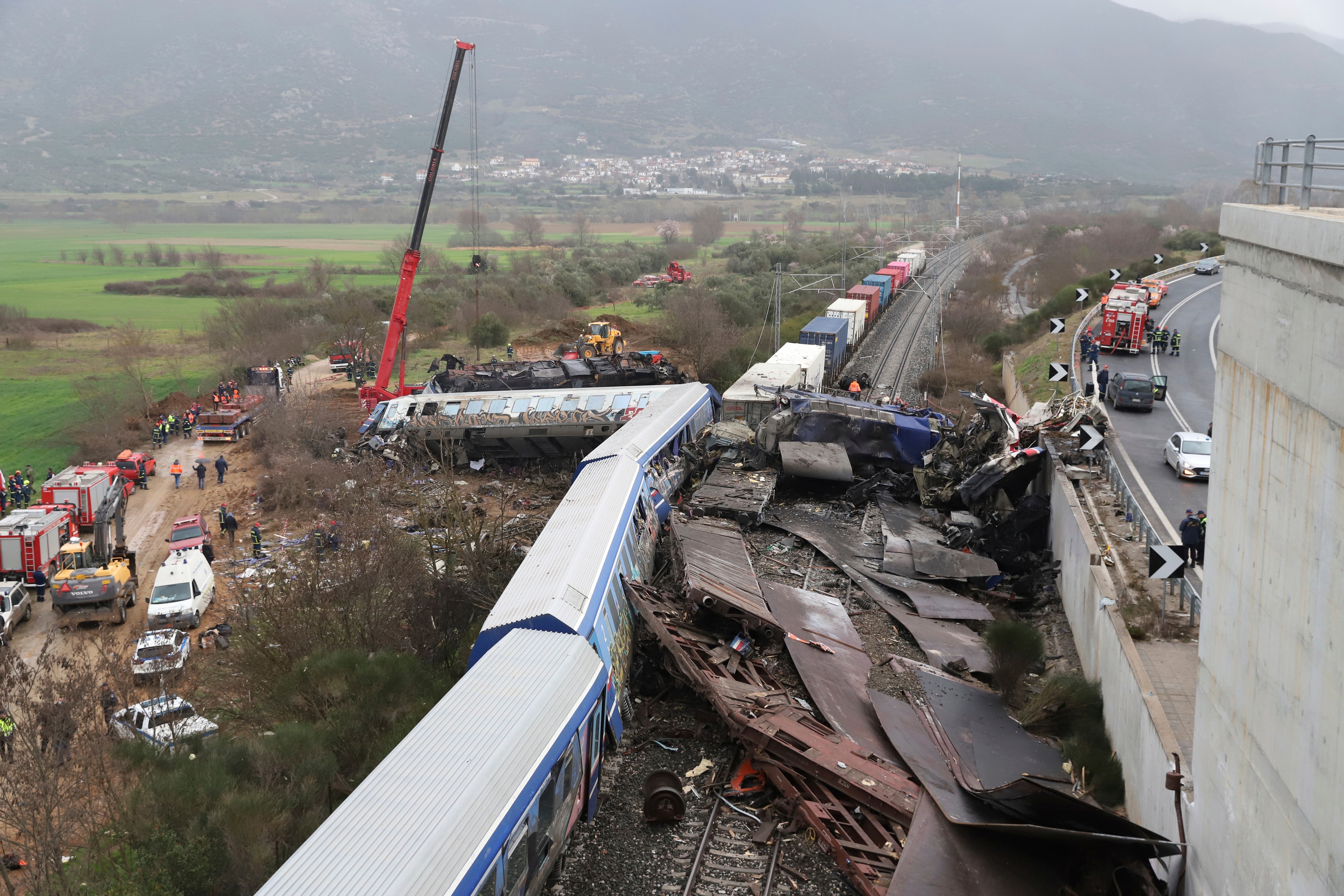
The directive specifies member states reach a contractual agreement between government bodies and the railway infrastructure manager outlining plans for investment into the railway to improve line speed, customer satisfaction and environmental protection.
Greece’s railway has long been considered one of the worst in Europe, leading the region for most fatalities per kilometre in the last decade according to data from the EU’s railway agency. The nation was also second to Estonia in the number of serious injuries per kilometre according to the same database.
Although the cause of the crash is yet to be revealed, leading officials are already pointing to failures in the railway system.
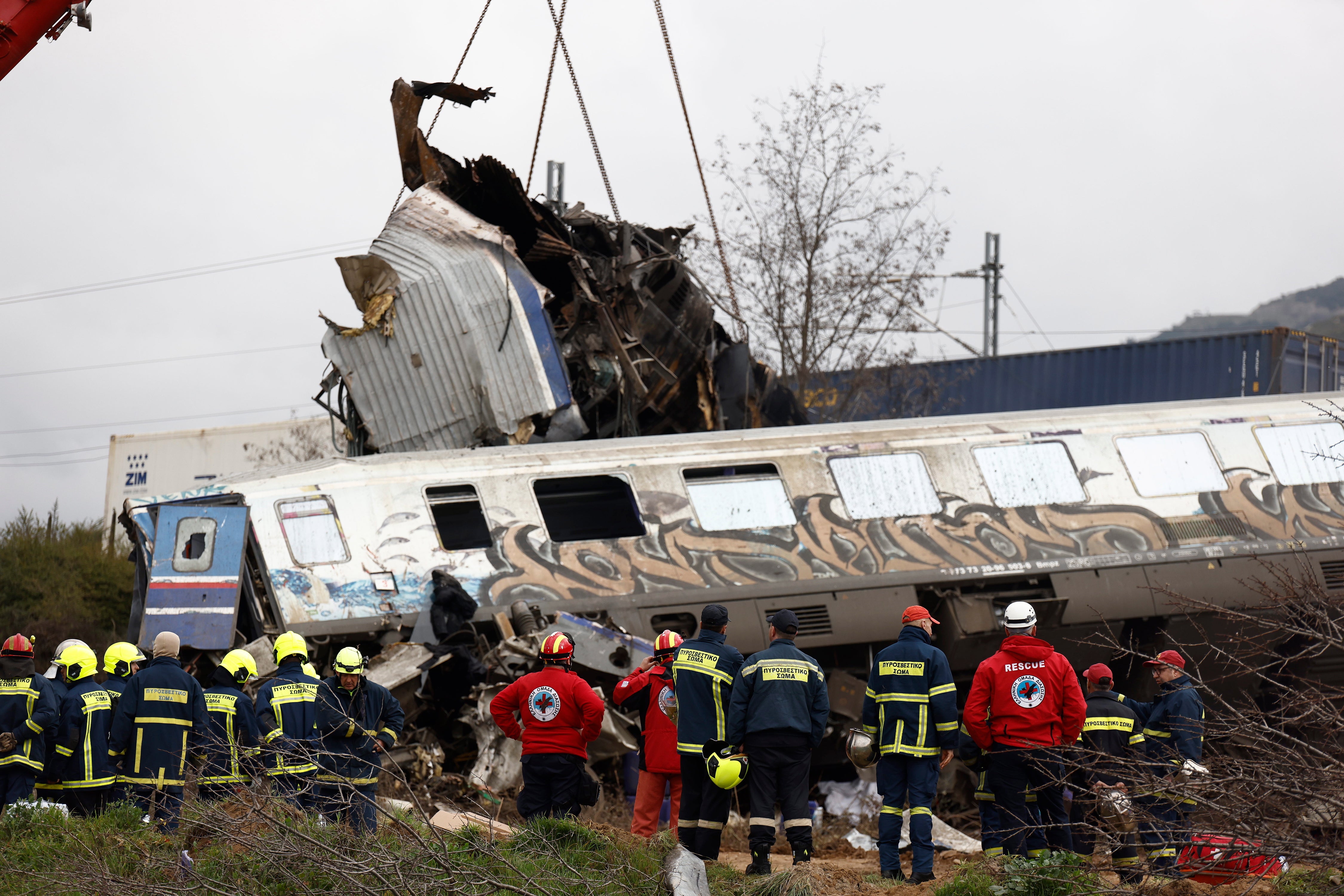
Following the crash before midnight on Tuesday, transport minister Kostas Karamanlis submitted his resignation, saying he was taking responsibility for the state's “long-standing failures” to fix a railway system he said was not fit for the 21st century.
Mr Karamanlis said he felt it was his “duty” to step down “as a basic indication of respect for the memory of the people who died so unfairly.”
The Greek rail operator Trainose was privatised in 2017 – as part of reforms imposed alongside the EU bailout of Greece – and attracted only one credible bid, from the Italian state-owned group Ferrovie dello Stato Italiane, which also with First Group runs Avanti in the UK through its Trenitalia subsidiary.
The former finance minister Yanis Varoufakis tweeted: “Now is the moment to grieve and to look after the injured and the victims’ families. But soon we shall bring to Greece’s parliament the underlying issue: yet another tragedy caused by a hideous railway privatisation. Paddington 1999, Larissa 2023.”
The EU Commission said on referral: “The Commission opened an infringement procedure against Greece in December 2020 and sent a reasoned opinion in December 2021. Since Greece remains in breach of the directive, the Commission has now decided to refer the case to the Court of Justice of the European Union.”







